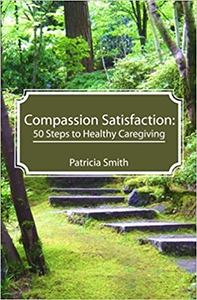Recognizing Compassion Fatigue
Compassion Fatigue symptoms are normal displays of stress resulting from the care giving work you perform on a regular basis. While the symptoms are often disruptive, depressive, and irritating, an awareness of the symptoms and their negative effect on your life can lead to positive change, personal transformation, and a new resiliency. Reaching a point where you have control over your own life choices will take time and hard work. There is no magic involved. There is only a commitment to make your life the best it can be.
Normal symptoms present in an individual include:
• Excessive blaming
• Bottled up emotions
• Isolation from others
• Receives unusual amount of complaints from others
• Voices excessive complaints about administrative functions
• Substance abuse used to mask feelings
• Compulsive behaviors such as overspending, overeating, gambling, sexual addictions
• Poor self-care (i.e., hygiene, appearance)
• Legal problems, indebtedness
• Reoccurrence of nightmares and flashbacks to traumatic event
• Chronic physical ailments such as gastrointestinal problems and recurrent colds
• Apathy, sad, no longer finds activities pleasurable
• Difficulty concentrating
• Mentally and physically tired
• Preoccupied
• In denial about problems
When Compassion Fatigue hits critical mass in the workplace, the organization itself suffers. Chronic absenteeism, spiraling Worker's Comp costs, high turnover rates, friction between employees, and friction between staff and management are among organizational symptoms that surface, creating additional stress on workers.
Healing an organization takes time, patience, and most important, commitment. An awareness of Compassion Fatigue and its far reaching effects must be present at the highest level of management and work its way down to encompass line staff, as well as volunteers. Often, the mistrust that employees feel towards management is not unfounded. Since many care giving institutions are non-profit, they inherit additional challenges such as low wages, lack of space, high management turnover rate, and constantly shifting priorities.
Organizational symptoms of Compassion Fatigue inlcude:
• High absenteeism
• Constant changes in co-workers relationships
• Inability for teams to work well together
• Desire among staff members to break company rules
• Outbreaks of aggressive behaviors among staff
• Inability of staff to complete assignments and tasks
• Inability of staff to respect and meet deadlines
• Lack of flexibility among staff members
• Negativism towards management
• Strong reluctance toward change
• Inability of staff to believe improvement is possible
• Lack of a vision for the future
The CFAP Newsroom features articles and interviews written by Founder Patricia Smith or reference CFAP's ongoing mission to raise awareness and promote authentic, sustainable self care...
Read all about it here!
Help us create another exciting venue for raising compassion fatigue awareness! We'll post new information on a regular basis. Become a fan!
With more than 20 years of training experience, CFAP Founder Patricia Smith writes, speaks and facilitates workshops in service of those who care for others.
If you're interested in having Patricia address your organization or group, click here!

CFAP Founder Patricia Smith's newest book guides readers through 50 steps to Compassion Satisfaction.
Pick up a copy here!

